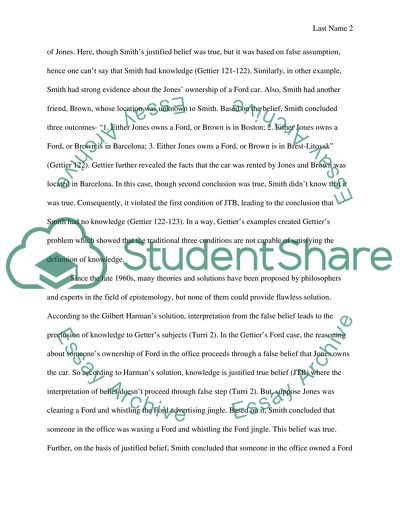Gettier's Problem Essay Example | Topics and Well Written Essays - 750 words. Retrieved from https://studentshare.org/philosophy/1657688-gettiers-problem
Gettier'S Problem Essay Example | Topics and Well Written Essays - 750 Words. https://studentshare.org/philosophy/1657688-gettiers-problem.


